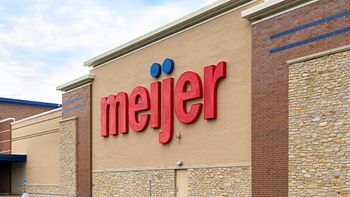Key Takeaways
- Patient access to treatment remains poor. For the second year in a row, patients with chronic conditions rated health plan access a “D,” with nearly half facing insurance-related barriers like high cost-sharing, formulary restrictions, and prior authorization.
- Barriers are worsening in 2025. Over a third of chronically ill adults have faced treatment access hurdles this year, with many citing rising costs and formulary changes as key issues.
- Legislative action could help. Proposed bills such as the Safe Step Act, Improving Seniors’ Timely Access to Care Act, and HELP Copays Act aim to reduce step therapy delays, reform prior authorization, and curb harmful cost-sharing practices.
When the PAN Foundation released its 2025 State of Patient Access Report scorecard, we found for the second year running that patients living with a chronic condition rated their ability to access treatment through health plans a “D.” In fact, this scorecard dimension received the lowest grade for patients, with almost half (48%) of insured patients who take prescription drugs facing some form of insurance-related barrier to accessing their Rx. For many, these barriers include high deductibles, increased cost-sharing, formulary restrictions, step therapy, and prior authorization.
Insurance-related barriers are on the rise
In June, PAN’s Center for Patient Research led additional polling to determine how prevalent health plan barriers were for patients. We found that:
- Since the beginning of 2025, more than a third (35%) of adults with a chronic condition have faced barriers accessing their medication(s)/treatment(s) through their healthcare plan.
- Nearly one in three adults (32%) report encountering insurance-related barriers more frequently in 2025 compared to 2024.
- Of those, around two in five noted an increase specifically in cost-sharing (40%) or formulary changes for their medication(s)/treatment(s) (37%).
Negative impacts for patients
Our polling also pointed to the negative impact these insurance-related barriers have on patient access to care, pointing out the need for these barriers to be addressed.
- Among those who have experienced an insurance-related barrier this year, 66% report at least a mild impact on their ability to access their prescribed Rx through their healthcare plan, with more than a third (35%) reporting a severe/moderate impact.
- Additionally, for 16% of adults with a chronic condition, this has diminished confidence in their ability to access their medications/treatments through their plan for the rest of the year.
Can legislation help remove barriers for patients?
There are several pieces of legislation that can help address the barriers patients are facing, but we need Congress to act.
Safe Step Act
Step therapy is a utilization management protocol in which a health plan or pharmacy benefit manager (PBM) requires patients to try insurer-preferred Rx and demonstrate that they do not work before the payer will cover the treatment initially selected by the patient and their provider. The Safe Step Act ensures that employer health plans, including their contracted PBMs, offer an expedient and medically reasonable step therapy exceptions process.
Improving Seniors’ Timely Access to Care Act
The Improving Seniors’ Timely Access to Care Act (H.R. 3514/S. 1816) was recently reintroduced in the House and Senate to codify prior authorization (PA) processes for Medicare Advantage (MA) plans. This bill would, among other things, establish an electronic PA process for MA plans, including a standardization for transactions, and increase transparency around PA requirements.
HELP Copays Act
Copay accumulators allow insurers to accept copay assistance from drug manufacturers, charitable organizations, or even family members without applying them to a patient's cost-sharing limits. As a result, patients are left with a much higher financial burden, making it harder to access the medications they need. The Help Ensure Lower Patient (HELP) Copays Act would:
- Require all payments made by or on behalf of a patient—including copay assistance—to count toward deductibles and out-of-pocket (OOP) maximums.
- Close loopholes that allow employer health plans to classify certain medications as “non-essential” to avoid counting cost-sharing payments.
Alternative funding programs
Alternative funding programs (AFPs) are offered to employer-sponsored, self-funded health insurance plans to save the insurance company money. With AFPs, health insurance plans may deny coverage for specialty medications and then require patients to choose between enrolling in an AFP or paying in full for the medication. Ultimately, this delays access to medications and increases OOP costs for patients with rare and chronic health conditions. Federal legislation is needed to ban AFPs.
What can you do to help patients?
As Congress considers the introduction and passage of key bills that can improve access to care for millions, we all have a part to play. I encourage you to take action today, because our collective voices have never been more important.
About the Author
Amy Niles is chief mission officer at PAN Foundation.





